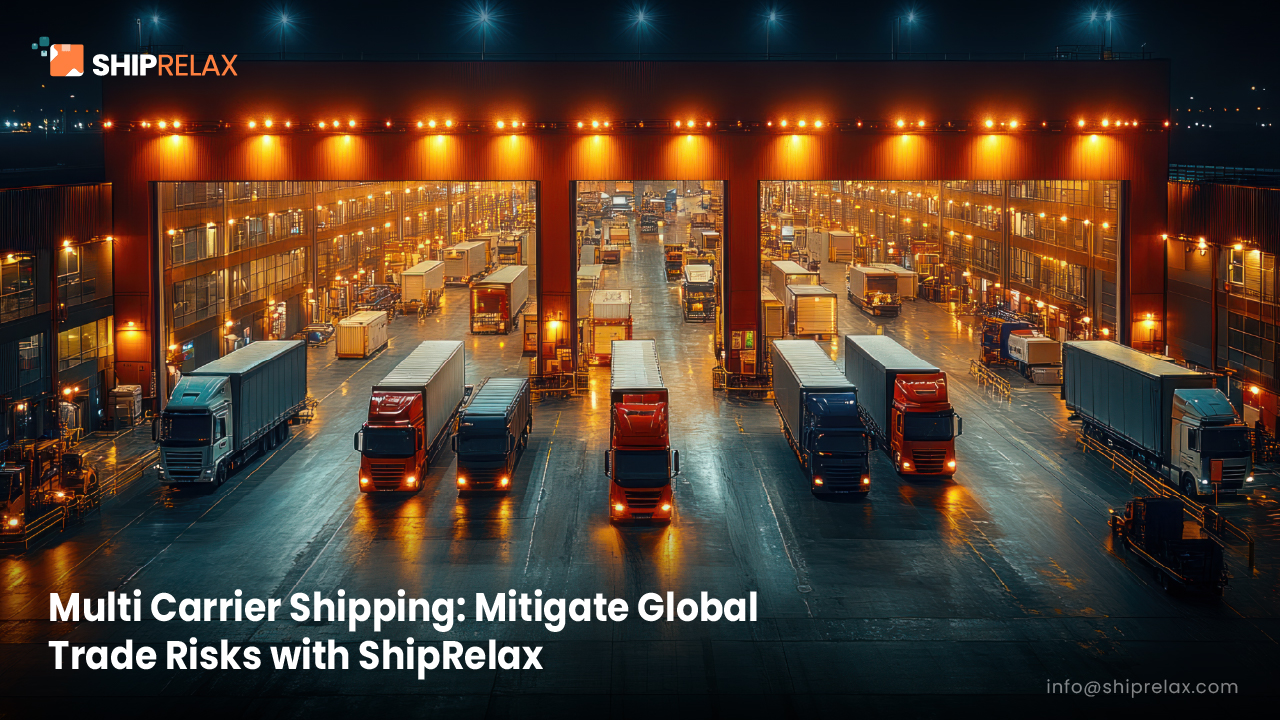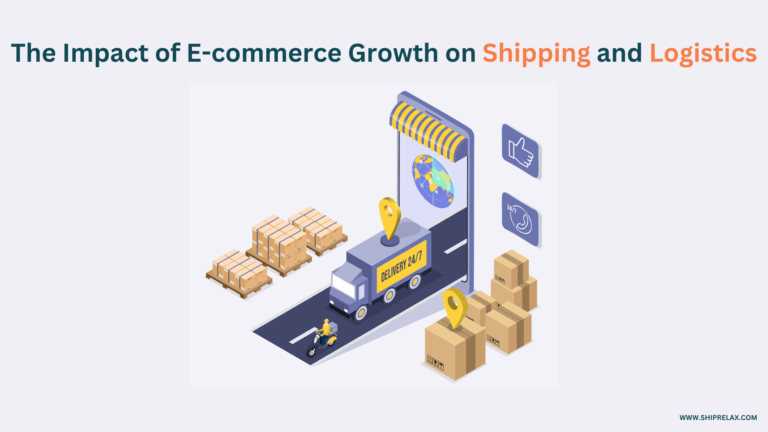
With rapidly growing competition in the e-commerce world, delivering products to your customers quickly, safely, and cost-effectively is essential for long-term success. A robust multi-carrier shipping strategy can be a major deciding factor between a one-time buyer and a loyal customer, helping brands build sustainable global trade logistics. But with so many shipping options out there, how would you pick the best?
Depending on a single shipping carrier can affect your flexibility and will end up increasing operational costs. One of the key essentials to align cost, speed, and coverage is leveraging multiple carriers. This guide will explain everything about shipping carriers and why working with a reliable 3PL provider can be a transformative force for your brand.
What are Shipping Carriers in eCommerce Logistics?
A shipping carrier is a company that transports goods from one location to another, usually from a seller or warehouse to the customer’s address. In e-commerce, the shipping carrier plays a significant role in ensuring timely, reliable, and affordable deliveries. From picking packages, sorting them in distribution areas, transportation, to efficiently delivering them to the final destination, they ensure smooth handling of all these aspects. Some of the leading shipping carriers include DHL, UPS, FedEx, and others.
What is Multi-Carrier Shipping and Why It’s Crucial for eCommerce Businesses
At its core, multi-carrier shipping is a transformative approach for eCommerce logistics. Instead of relying on a single courier, a multi-carrier shipping solution connects your eCommerce business to multiple carriers through one integrated logistics platform.

Think about the challenges brands experience every day:
- Same-Day or Next Day Delivery: Shoppers in metro cities or other major towns expect same-day or next-day delivery.
- Seasonal Order Surges: During busy seasons, it becomes challenging to handle the order surges with one carrier.
- Regional Accessibility: In regions like the northeast or rural areas, customers can rely only on local carriers.
- Cost Control: Rates vary greatly by zones, service types, and weight; without rate comparisons, businesses pay more than necessary.
Key Factors That Affect Multi-Carrier Shipping Costs and Rates in eCommerce

Before deciding on the shipping carrier, it’s important to understand what affects your shipping costs. Essentially, four factors decide the cost of your shipment:
- Weight: This actually refers to the actual heaviness of the package. The heavier the weight of your parcel, the higher the shipment costs.
- Dimensional Weight: This industry size calculation takes into account the size of your package (length*width*height). Carriers use DIM Weight to understand how much space a package occupies during transport.
- Shipping Areas: These areas represent the distance between your fulfillment center and the customer’s address. The greater the distance, the higher the shipment price.
- Delivery Speed: From standard ground delivery to premium express shipping, the shipment costs vary depending on the urgency of the delivery.
Understanding these factors will help you pick a shipping strategy that does not eat up your profits but ensures speed, reliability, and customer satisfaction.
Leading Shipping Carriers Compared: DHL vs FedEx vs UPS vs USPS
Choosing the Right Carrier Mix for Your eCommerce Brand
Some of the leading shipping carriers in the US market include FedEx, USPS, UPS, DHL, Amazon Shipping, and others. Each carrier offers a unique set of features, ideal for different businesses and products:
USPS (United States Postal Service)
Ideal for: Small, lightweight products (eg, books, cosmetics, apparel, etc.)
As a government-operated carrier, USPS is best known for its unique advantage of accessing every mailbox in the country. This makes it an exceptional, cost-effective, and accessible shipping choice for businesses. Its Priority Mail Cubic Service is particularly valuable, and its measure rates price based on package dimensions rather than weight, offering notable savings on dense but small items.
USPS is ideal for domestic service with free tracking; it is highly reliable, though its international shipping can sometimes be inconsistent.
DHL
Ideal for: International e-commerce shipping
DHL is a trusted leader in global logistics, thanks to its global distribution network. Their highly reliable and cost-efficient e-commerce service is ideal for lighter international packages. For fast and end-to-end international delivery, you can choose their DHL Express service, delivering to over 220 countries and territories within 2-4 business days. Due to their top-tier services, their volume requirements can be a barrier for a small brand, making 3PL partnerships essential for success.
FedEx
Ideal for: Quick, customized shipping needs (eg, perishable goods)
FedEx is the second name for speed, overnight, and express shipping, making it a go-to carrier for time-sensitive deliveries. They even help you with specialized logistics solutions, including temperature-controlled packaging. Similar to UPS, FedEx also has a large and established global network, though its premium service comes at a higher cost without negotiated 3PL rates.
UPS
Ideal for: Large, heavy, and high-value items (furniture, electronics, and luxury items)
UPS is undoubtedly the first name that comes to mind, particularly for successful bulky shipments. Their reliable and detailed tracking is one of the biggest reasons that makes them one of the top choices for high-value products. UPS Express Critical is a great choice for urgent shipments, helping get shipments delivered anywhere between 1-3 business days.
How ShipRelax 3PL Fulfillment Boosts Your eCommerce Shipping Efficiency
Handling multiple carriers, negotiating shipping rates, and managing the complexities of fulfillment can be stressful, especially for e-commerce brands. This raises the need for partnering with the right 3PL partner like ShipRelax.
With its advanced Virtual Carrier Network, ShipRelax can help you choose the most effective, cost-efficient shipping option for every single order.
Here’s what you can expect from a reputable 3PL provider:
- Discounted Prices: Take advantage of discounted carrier rates by leveraging the massive shipping volumes negotiated by the 3PL.
- Well-Planned Fulfillment: By placing your inventory across multiple regional fulfillment centers, you can significantly reduce shipping zones, lower costs, and ensure faster delivery times for your customers.
- Operational Resilience: A 3PL expert can effortlessly adapt to carrier surcharge, delays, or other supply chain complexities through automatically rerouting shipments through the best available provider.
- Robust Technology Integration: From real-time tracking to automated shipping label generation and detailed analytics, 3PL fulfillment technology helps bring efficiency and insights to your entire fulfillment process.
By outsourcing your logistics, you can focus on growing your brand, bringing innovation, and connecting with your customers.
To Find Out More About ShipRelax Shipping Carrier Services!


